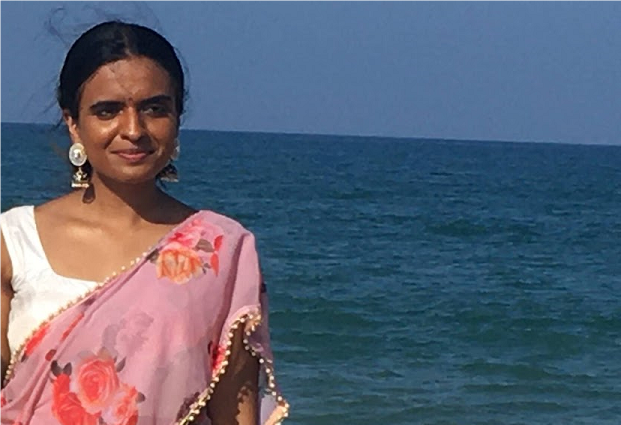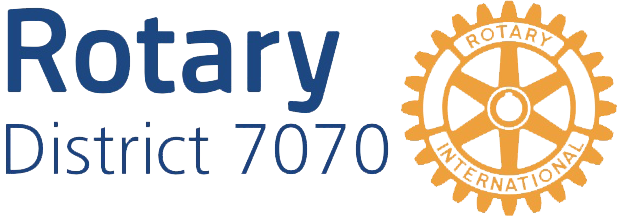
At the recent Rotary District Conference in Allison (Oct 14-16, 2022) we had the pleasure of meeting our Rotary Global Peace Scholar Jothi Udaya Shan. For those of you who missed the Conference, here is your chance to meet Jothi, in her own words..... Udaya Jothi Shan is a peace activist, yoga practitioner and an advocate for the rights of displaced peoples. She is a Tamil-Canadian and the founder of the social-enterprise P.E.A.C.E. that offers the mind-heart-body practice of yoga and mindfulness to displaced children and families. Jothi serves as a Development Manager at the United Nations Children’s Fund. She holds a Bachelor's degree in peace studies and a Masters in Criminology and legal studies from the University of Toronto. .......
Becoming a “Catalyst for Peace”
“If all goes well, from the moment we become adults, we have about fifty years. Fifty years to find our own rhythm and place in the world, to discover our passion, to fall in love, to build friendships and to learn how to live without them. Fifty years of daily decisions which determine the footprint that we leave when we pass on.”
A la Mar: Protecting the Waves in Peru
I am finding my rhythm and place in the world.
I am grateful that the Rotary Foundation works to create, “catalysts for peace,” by awarding fellowships for masters’ degrees in this field of study. The fellowships are awarded to professionals with a minimum of ten years of work experience and demonstrated knowledge in the field of peace.
Receiving Rotary’s fellowship has been a pivotal moment in my journey of self-discovery and trauma healing. Without the support of this scholarship, I would not have had the ability to take the risks necessary to seriously investigate the pressing global issue of displacement.
When I first came across the scholarship, I was apprehensive to apply. I understood the privilege and responsibility of stewarding such an important investment in scholarly advancement. On a much deeper level, I felt, for it to be a truly meaningful endeavor, it would call for a thoughtful reflection on peace and a heightened level of mind-body-spirit healing.
Through the fellowship, I will complete a Master of Peace and Conflict Resolution at the University of Queensland in Australia. My academic training will focus on the areas of: conflict mediation, peace-making, civilian peace-building, forces that generate contemporary conflict and the practices that contribute to conflict prevention.

On a visit to Mattakkalappu/ Batticaloa, Sri Lanka in 2022 to explore community partners.
Informed by my own experiences of migration and displacement from Sri Lanka, I am interested in exploring how modern-day peacebuilding efforts and conflict mediation processes can honor the experiences of displaced peoples, and how peacebuilders can share power and responsibility to create inclusive and interconnected relationships with displaced peoples.
I envision us living in a world, where the people with power and resources move beyond the sentiments of charity and saviorism to face the complex causes and challenges of conflict. Together, we can acquire a deep understanding of the human experience and the need to heal our collective traumas.
How do we balance the political and the sacred?
Today, there are more people displaced than after the Second World War. Refugees are perceived as a burden and are often unwanted by potential host countries. Displaced people encounter unimaginable suffering and trauma in their search for safety. They are dedicated to protecting their children and have confronted the human condition in profound ways. They should be honored for courageously exercising their right to life and liberty. They should be admired for choosing to live in dignity. To meaningfully experience our shared humanity, we would need to commit to healing our traumas, and I recognize that this may take multiple generations. The possibilities are limitless in what we can offer each other in our journeys to find our place in the world.
As a yoga practitioner and teacher, my practice is rooted in the belief that to be alive is to be in right relationship. This means our well-being is directly connected to the well-being of others and to this earth that is our shared home.
As I embark on this new chapter, I am left with one central question. I invite you to ponder on it and hope we can share our reflections the next time we meet.
What would our peace work look like if were to embody peace itself?
Editor's Note:
Each year, Rotary awards up to 130 fully funded fellowships for dedicated leaders from around the world to study at one of our peace centers. Through academic training, practice, and global networking opportunities, the Rotary Peace Centers program develops the capacity of peace and development professionals to become effective catalysts for peace. The fellowships cover tuition and fees, room and board, round-trip transportation, and internship and field-study expenses.
Since the program began in 2002, the Rotary Peace Centers have trained more than 1,500 fellows who now work in over 115 countries. Many serve as leaders in governments, NGOs, education and research institutions, peacekeeping and law enforcement agencies, and international organizations like the United Nations and the World Bank.
The Rotary Peace Fellowship is designed for leaders with work experience in peace and development. Our fellows are committed to community and international service and the pursuit of peace. Each year, The Rotary Foundation awards up to 50 fellowships for master’s degrees and 80 for certificate studies at premier universities.
